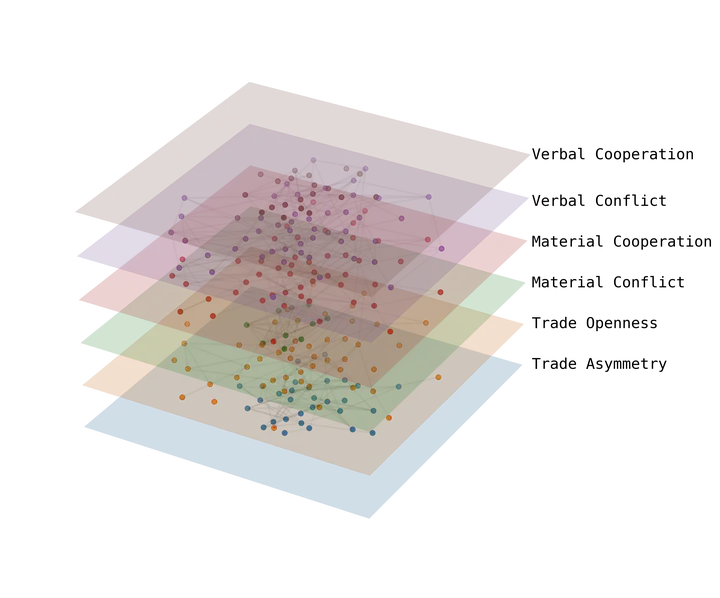Parsing Co-dependence in Trade and Conflict

Understanding the relationship between trade and conflict has always been important but it has never been more pressing in the wake of rising trade tensions between the today’s most powerful economies. In this paper, we break new ground by first, examining the role cooperation plays in explaining the relationship between trade and conflict across different theoretical frameworks (liberal, realist and bargaining). Second, by exploring how both verbal and material forms of conflict and cooperation affect trade outcomes, we are further able to test at least one possible pathway through which trade and conflict affect one another. Finally, by using multilinear tensor regression analysis, we account for problems with endogeneity and higher level dependencies (e.g. reciprocity and transitivity) that the scholarship has long struggled to address. We find evidence for a realist understanding of the relationship between trade and conflict: trade asymmetries and verbal and material conflict simultaneously affect each other.